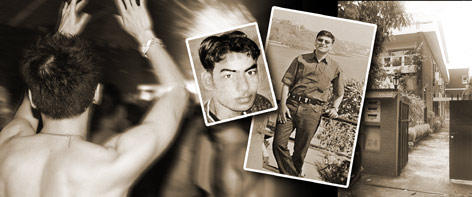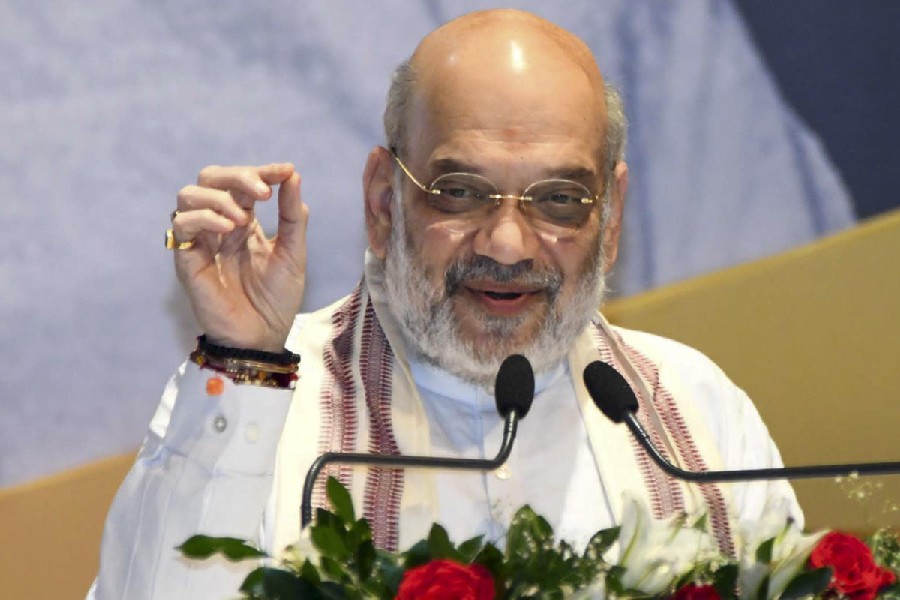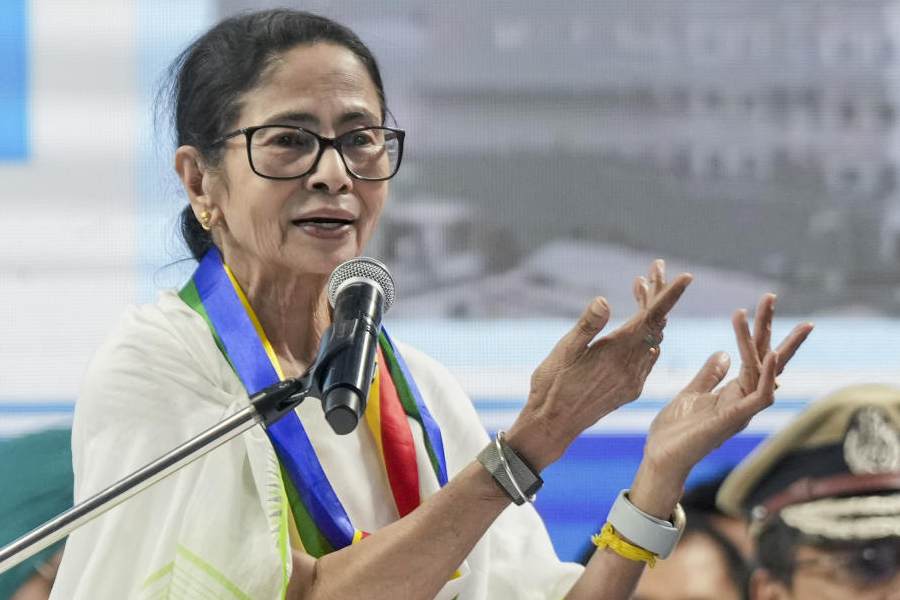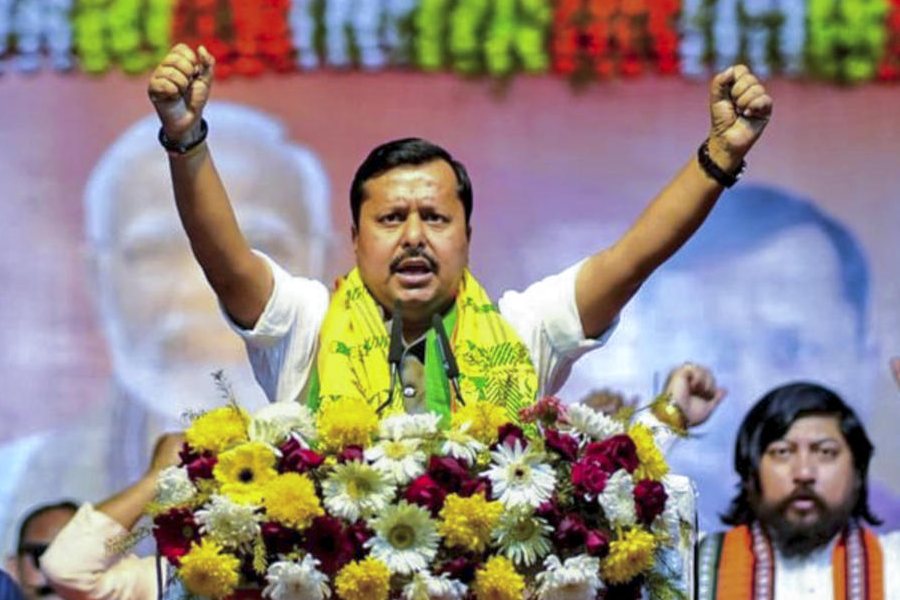 |
| NOWWHERE MEN: (Clockwise from left) A gay party in progress; Kuldeep Singh; Pushkin Chandra; Chandra’s residence; (below) a gay couple do the tango |
To many, Pushkin Chandra was the US-returned son of a retired bureaucrat who worked as a project development officer for a multinational NGO, USAID. To those who knew him more closely, he was also gay.
On August 14, he was stabbed to death in the bathroom of his outhouse in the upmarket Anand Lok colony in south Delhi. Also found dead in his bedroom was a man in his 20s. Pushkin’s partner was one Kuldeep Singh, a lower middle-class unemployed youth — the son of a cafeteria employee at the All India Institute of Medical Sciences. His body was in a similar situation: hands and legs tied, throat slit.
Few New Delhi murders have been so gleefully followed and in such graphic detail. The media went to town on Pushkin’s sexual adventures. It talked about how the former Doon School student, named after the Russian poet, used to pick up male prostitutes or other men from parties.
It went into details about how the police found hundreds of pornographic photographs of naked men and video cassettes in his room. And there were endless reams and reels about how Pushkin, who had a management degree from Ohio and worked in an Atlanta-based company earlier, could have been a possible blackmailer.
Reports also spoke about the Capital’s “gay culture” — the pick-up spots, the chatrooms, the lingo, the orgies — where sexual promiscuity is the norm, suggesting that the entire community was walking a dangerously thin line. In a country where the law sees homosexuality as a crime and where social acceptance is still extremely low, gays believe that they are forced to live their lives in shadows.
And while the gruesome twin murder case highlights one aspect of gay life in a small section of the community, the incident — and the way it has been treated — has further marginalised an already marginalised community which has little space and few rights.
“The way the incident has been projected has set the gay rights movement in this country back by 10 years,” says Anjali Gopalan of Naaz Foundation. And Pramada Menon of Voices Against 377, a human rights network, adds: “The lifestyle of an individual is being used to serve as an example for a whole community.”
From all accounts, Pushkin had an active social life. On the night of the murder, Kuldeep and he had gatecrashed into a party thrown by Uffe Gartner, a gay Danish national who worked for the UNDP. They were accompanied by two other young men who were strangers to the others at the party. The two men, who the police said seemed to have a lower middle-class background, are now the prime suspects for the murders. Till Saturday morning, the Delhi police was unable to trace them. Says deputy commissioner of police (south), Praveer Ranjan, “It is possible that Pushkin picked up these guys in the same way he had picked up Kuldeep — through a common friend or at a party.”
Several theories — sexual jealousy, blackmail etc. — have been loosely floated as motives behind the murder. But with a huge list of items missing — Pushkin’s Opel Corsa, a laptop, credit cards, DVD player, handycam, mobile phone, polaroid camera and cash from his purse — robbery could have been a motive. The investigation is on, but what is clear is that liaisons such as these could be dangerous.
UN expert and filmmaker Deepak Gupta, who is working on a documentary on homosexuals, offers a larger picture on the basis of interviews with over 100 gays in and around Delhi. Gupta, who works for UNFPA, says: “They are constantly looking for sexual encounters, even with strangers. In some cases, they don’t even know each other’s names.”
During his two-year research on the subject, Gupta came across several instances where sex was the only link between two people separated by wide class, caste and even language differences. “By and large, their sense of belonging and loyalty to each other is very rare. It is a difficult situation because on the one hand, one is concerned about their sexual and legal rights or the lack of them; on the other hand, one is worried about their sexual health and the physical dangers they are exposed to,” he says.
But a successful Delhi-based event manager, who is not a homosexual but has several gay friends, rejects the view that most gays change partners frequently. “I have seen some of them going around with the same man for six years or more. And I have seen them having heartbreaks,” he says.
But for the few who walk the wild side, the danger of blackmail or robbery is real. Social worker Sandish Singh knows of a doctor who picked up a stranger from New Delhi’s Connaught Place. After sex, the man threatened to create a scene unless he was paid Rs 5,000. The doctor quietly paid up. “But before leaving, the blackmailer also took away his medical equipment,” says Singh.
In another case, two gay lovers in Simla were blackmailed after being photographed in an amorous position. “Finally, we had to take the help of a police officer I personally know,” says gay social worker Singh.
The fact remains that for most members of the gay community, there isn’t much of a choice. Roopesh Chhetri, a gay activist who works as a public relations officer with the NGO, Development, Advocacy and Research Trust (DART), feels that a heterosexual can find a partner without fear of the law. “But where can a gay — if he is a banker or an LIC agent — choose a partner from his daily surroundings?” he asks. This is the reason, he says, why designated spots such as a particular corner of a park, a bus stand or a urinal becomes a meeting point.
And Sandish Singh, who works for DART, worries that certain activities such as cruising have developed a negative connotation. “For most heterosexuals, cruising is equal to sex. But for us, it is just a way of meeting your own kind of people,” he says. Gays meet up with other gays — sometimes for a cup of coffee or a film, and occasionally for sex. Says Chhetri, “I know gays who are still virgins. They just know who they are.”
 |
| FACT & FICTION |
| Myth: Gay men are promiscuous. Myth: Women become lesbians if they can’t find a man. Myth: Marriage cures homosexuality. Myth: Lesbians and gays can convert you to homosexuality if you are not careful. Myth: Gay men are effeminate and lesbians are masculine. Source: Voices Against 377 |
Many point out that only a relatively small section within the gay community is “indiscriminate” — the expression a police officer uses to describe Pushkin’s sexual proclivity. But the double-murder has raised the worst fears among the Capital’s gays.
The fears came tumbling out at a press conference on Thursday in New Delhi. Many were surprised when gay lawyer Ashish said, “The last few days have been violent for me. I feel battered because I know when they are saying all those stereotypical things about the gay community, they are also talking about me.”
These are ambivalent times for the Indian gay. This is a time when gays are trying hard to assert their identity, when lesbian-gay pride marches are taking place, when pubs are reserving special nights and even in relatively conservative places like Bhubaneswar, condoms are being given to prisoners.
This is also the time when lesbians commit suicide in Kerala and vandals target films such as Girlfriend which deal with lesbianism.
In this backdrop, the double gay murder has come as shocking news for homosexuals in the Capital. “Nobody is meeting anybody these days. The cruising spots are vacant. People are even scared to chat on the Internet,” says Chhetri. Homosexuals feel that perceptions about the community would worsen with the Pushkin-Kuldeep murder case, making it much more difficult for gays to come out of the closet. “Things are worse now than they were, say, even a week ago. Which father or mother will accept a gay son if he is like Pushkin has been made out to be?” says Ravi (not his real name), a gay student.
Within the community, those who come from the lower middle-class sections of the society feel they have a bigger problem before them than their richer counterparts. Gays belonging to the upper strata and linked with professions like fashion designing, they feel, can afford to come out in the open.
“They are rich people who have created their own islands,” says Ravi. “It is a different situation for us.” This section also believes that it is the upper- class angle in the Pushkin-Kuldeep double murder that has grabbed the media attention. “Who cares about the poorer gays? Even the police want to have fun with them,” he says.
Homosexuals often complain of being harassed by the police, who not only want money from them but also free sex. However, police officer Ranjan disagrees. “They are not victimised by the police. The police take action only when there is a complaint,” he says.
Gay rights activists believe that nothing is going to change unless Section 377 is repealed from the Indian Penal Code. A part of the section runs like this: “Whoever voluntarily has carnal intercourse against the order of nature with any man, woman or animal, shall be punished with imprisonment of either description for a term which may extend to 10 years and also be liable to fine.”
But there is still hope. A petition has been filed in the Delhi High Court to have the law changed. Rights marches have also been organised in New Delhi and Calcutta recently. Voices Against 377 has also petitioned the Union law ministry.
As Chhetri says, “You cannot wish us away. We exist.”











